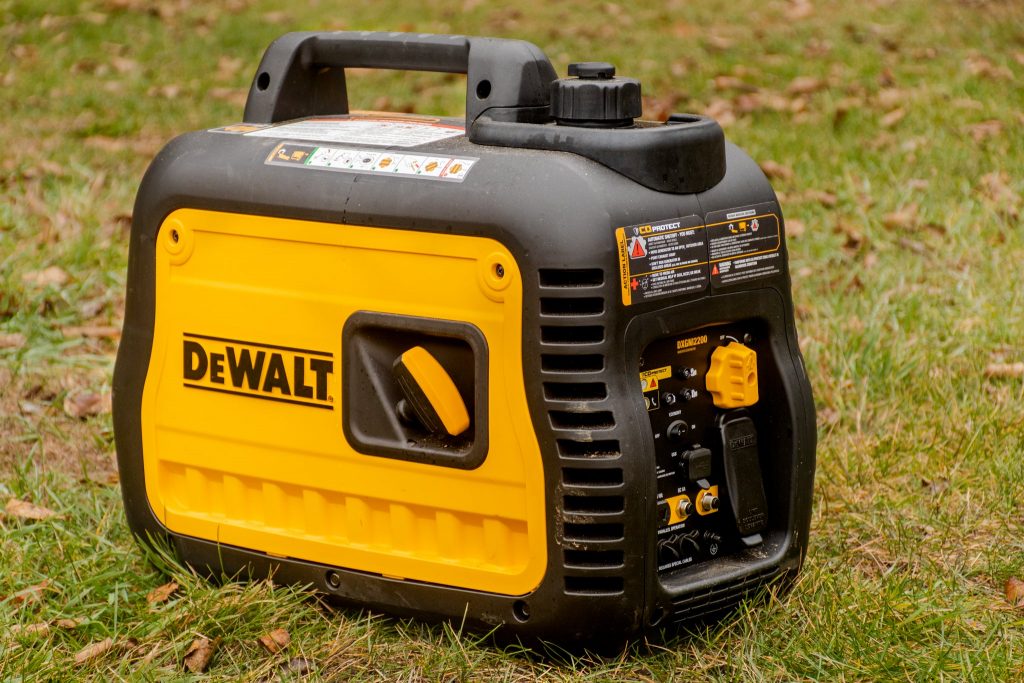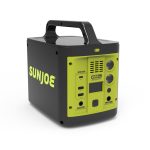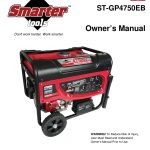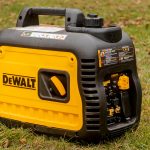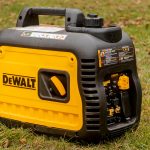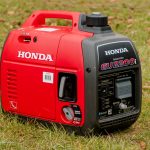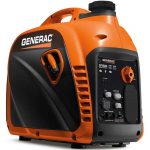A small mobile generator is the smallest generator that can power a house. It has a small, lightweight design which makes it very easy to transport and store. It is usually powered by gasoline or diesel fuel, making it ideal for remote areas where access to electricity is not available. The output of a small mobile generator is typically limited to a few thousand watts, which is enough to supply basic electricity needs in a house. It can provide power to the lights, refrigerator, microwave, and other household appliances.
It can also be used to charge batteries, run a television, or power tools during construction or repair projects. Small mobile generators are popular for camping and recreational activities, such as fishing and hunting. They are also widely used by people who live off the grid or in rural areas where access to the power grid is not available. Small mobile generators can be very reliable and offer a cost-effective solution for powering a house. They are typically easier to maintain and repair than larger models. They also offer more flexibility in terms of how and where they can be used, as they are easier to transport and store. Overall, a small mobile generator is a great option for those who need a dependable, cost-effective solution for powering their homes. It is an ideal choice for people who live off the grid or in rural areas, as well as those who want to be able to use electricity for recreational activities.
Can I plug my portable generator into my house?
But can you plug a portable generator into your house for more permanent use? The answer is yes, you can plug your portable generator into your house, however it is important that you do so safely and responsibly. It is recommended that you use a transfer switch when connecting your portable generator to your home. This switch will isolate your portable generator from the main power grid and prevent backfeeding. Installing a transfer switch requires professional help, as it requires wiring and the installation of the switch itself. Therefore, it is important to get qualified help to ensure that the job is done properly.
After the switch has been installed, you will be able to plug your portable generator into your house and power your home in the event of an emergency. It is also important to note that portable generators should be used in well-ventilated areas, as they produce carbon monoxide, which is a deadly gas. Overall, using a small mobile generator to power your home is a great way to stay safe and secure in the event of an emergency. However, it is important to take the necessary steps to ensure that it is done safely and responsibly.
What size portable generator is needed to power a house?
This type of generator is typically between 5KW and 7KW and produces enough power to provide essentials such as lighting, heating and cooling, and powering other small appliances. When choosing a small mobile generator, it is important to consider the size of your home and the amount of power needed to run the appliances. A larger home with multiple appliances will require a larger generator with more wattage to generate enough power for everything. It is important to research the wattage requirements of your home and appliances before making a purchase. This will help ensure that you purchase the correct size generator for your needs.
For an average-sized home, a small mobile generator with a power rating of 5KW is typically sufficient. However, if there are multiple large appliances such as an air conditioner, you may need to purchase a larger generator with a power rating of 7KW or higher. In conclusion, when looking for a portable generator to power a house, a small mobile generator is a great option. It is important to consider your home’s size, wattage requirements, and the number of appliances before purchasing the generator to make sure you get the right size for your needs.
How do I hook up a portable generator to my house?
Installing a small, mobile generator to your house can power electrical appliances during power outages. Here are the steps you have to take to hook up a portable generator to your home. Firstly, you need to determine which circuits in your home you want to power with the generator. This will depend on the size of the generator and what you need to power. Next, you will need to connect your generator to your home’s power system.
This will involve running a power cord from the generator to a transfer switch. The transfer switch will act as a bridge between the generator and the main power system. You will also need to make sure your generator is safely grounded. This is important to reduce the risk of fire and injury. Once all the wiring is in place, you will need to ensure your generator has enough fuel. Depending on the type of fuel, it can be gasoline, diesel or propane. Finally, you will need to turn on the generator and start running your appliances. Be sure to follow the manufacturer’s instructions for starting and running the generator. With these steps, you can easily hook up a portable generator to your home.
How many watts does it take to run a 3 bedroom house?
A small mobile generator can provide power to a three bedroom home. The amount of watts needed to run the house will depend on the size of the home and the number of appliances and devices that will be in use. Generally speaking, a 3 bedroom home will require at least 4,000 watts to run most of the major appliances. The electricity requirement will be higher if the home includes a central air conditioning system and other high-powered devices. If your 3 bedroom house includes a large refrigerator, a stove, a microwave, several lights and fans, and other small appliances, you’ll need a minimum of 5,500 watts to keep everything running smoothly.
For larger homes, the wattage requirement can easily reach 8,000 watts or more. A small mobile generator is capable of providing the power necessary to run a 3 bedroom home, but it must be properly sized for the total wattage requirement. To do this, add up the wattage of all the appliances and devices you plan to use, and make sure the generator can provide enough wattage to satisfy your needs. When shopping for a generator, look for one with a high output capacity, so you can run your 3 bedroom home efficiently and safely. Be sure to factor in any future additions to the home that may require additional wattage. With the right generator, you can keep your 3 bedroom home running smoothly.
Are portable generators worth it?
Portable generators are an invaluable tool for any homeowner or business who needs to keep their power running when the electricity is out. Small mobile generators can be used to recharge batteries, run small appliances, and even power a home or office in the event of a power outage. Portable generators are typically powered by either gasoline or diesel fuel, and they are easy to transport and store. They are ideal for camping trips, tailgating, and other recreational activities. They are also great for emergency situations where access to a larger generator isn’t available.
The main advantage of a small mobile generator is that it is much more affordable than a large generator. It is also easier to use and maintain, and they’re more portable and can be used in remote locations. When it comes to buying a portable generator, it is important to consider the power output and fuel efficiency. These two factors will determine how much power you can generate, how long the generator will last, and how much fuel it will consume. Overall, portable generators are definitely worth the investment. They provide reliable power when you need it the most and are great for emergency situations. They are also much more affordable than large generators and are easier to transport and store.
What are the disadvantages of a portable generator?
Small mobile generators offer convenience, but can also present some drawbacks. One disadvantage is the noise they create, as they are loud and disruptive, especially in quiet or residential areas. They are also relatively expensive, plus they require fuel and regular maintenance, which can add up to high operating costs. In addition, portable generators can be dangerous if not used properly, as they produce carbon monoxide and other toxic gases. It’s important to ensure the generator is operated in a well-ventilated area and never used indoors, as this can be hazardous to health. Portable generators also emit air pollutants, which can have an adverse effect on the environment. Finally, they are prone to mechanical failure, and can be difficult to repair.
How many watt generator do I need to run a small house?
But the question you may be asking is “How many watts do I need to run a small house?” The answer to that question depends on the size of your home and the types of appliances you plan to use. Generally speaking, a home of up to 2,000 sq. ft. will require a generator of at least 3,000 to 5,000 watts. This will provide enough power to run several small appliances, like a TV, refrigerator, and microwave.
For larger homes of up to 3,500 sq. ft., you will need a generator with 6,000 to 8,000 watts. This will provide enough power to run several large appliances, like a furnace, washer and dryer, and dish washer. For homes larger than 3,500 sq. ft., you will need a generator with even more wattage. It is best to consult a contractor or generator specialist to determine the exact amount of wattage you need for your home. No matter what size generator you choose, it is important to make sure it is powerful enough to handle the amount of power you need. With the right wattage, you will be able to provide reliable power to your home, no matter the size.
What size portable generator will power a house?
A small mobile generator is perfect for providing power to a house. Depending on the size of the house and the number of appliances and devices you need to power, the size of the generator you need can vary. For a small house, a portable generator with a wattage range between 1000 and 2000 watts is usually enough. This type of generator can typically power the basics, such as lights, TV, refrigerator, and small appliances. For a medium-sized house, a larger generator with a wattage range between 2000 and 3000 watts is usually required.
This type of generator can usually power larger appliances, such as air conditioners, microwaves and freezers. For a large house, a generator with a wattage range between 3000 and 4000 watts is usually necessary. This type of generator can power all of the appliances, devices, and electronics that a large house has, such as heating systems and larger air conditioners. A small mobile generator is a great choice for providing power to a house. The size of the generator you need depends on the size of the house and the number of appliances and devices you want to power. With the right size generator, you can power your entire home.
What is the most quiet small generator?
The most quiet small generator is a very desirable option to make sure your power source is unobtrusive. These generators typically have a quieter operation than larger units due to their smaller size. The key to finding the most quiet small generator is to look for one that has a low decibel rating. A rating of 65 or lower is considered to be silent. Some of these models may also have mufflers which further reduce the sound output.
Whether you’re looking for a generator for camping or for work, a small mobile generator with a low noise level can be the perfect solution. They are powerful enough to provide all the power you need without causing a disturbance. Another factor to consider when selecting the most quiet small generator is fuel efficiency. Gasoline and diesel models may be preferred for their power output and reliability, but they can also be louder. If you’re looking for an eco-friendly option, an electric generator may be the best choice. These generators produce less noise and are more efficient when it comes to fuel consumption. Overall, the most quiet small generator is one that has a low decibel rating, a muffler, and is fuel efficient. This will ensure that your power source is as silent as possible while providing reliable power.
What is the cheapest quietest generator?
The cheapest and quietest generator you can get is the Honda EU2200i. This generator is lightweight and portable, while also delivering reliable power with its 120V output. Its rated noise level is only 48 dBA, making it the quietest in its class. Its fuel efficiency and low fuel warning system make it a great choice for those who want to save money on fuel costs. It also has an Eco-Throttle setting, which means it can adjust its fuel output depending on the load connected to it. The Honda EU2200i is a great choice for anyone looking for a reliable, quiet, and cost-effective generator.
What is an inverter generator vs generator?
Inverter generators are a type of generator that produce cleaner and more consistent power than a traditional generator. Inverter generators use advanced technology to produce clean power that is suitable for use with sensitive electronics such as laptops or mobile phones. Small mobile generator are ideal for camping, tailgates and other outdoor activities. They are usually lightweight and portable, and can be easily moved around. Inverter generators are usually smaller and lighter than traditional generators, making them easier to transport, and they also produce less noise than traditional generators.
Inverter generators are also more fuel efficient than traditional generators, so you can get more power out of less fuel. They are also better for the environment, since they produce fewer emissions than traditional generators. In general, inverter generators are a great choice for small mobile generators. They are quieter and more fuel efficient, and they produce cleaner, more consistent power. They are easy to transport, and their advanced technology makes them ideal for powering sensitive electronics.
Is there such a thing as a mini generator?
Mini generators are portable and usually powered by a gasoline or diesel engine, making them an ideal choice for those who need a reliable source of power that can be quickly and easily transported from place to place. Mini generators come in a variety of sizes and wattage capacities, allowing users to choose the model that best suits their needs. They typically require no installation and can be plugged in directly to provide immediate power. Additionally, they are relatively quiet and efficient, making them a great option for those who want to power their appliances without the noise and emissions of a traditional generator. Overall, mini generators are a great choice for those who need a reliable source of power for recreational activities, for backup power at home or in businesses, or for powering small appliances. They are portable, efficient, and relatively quiet, making them an ideal choice for those who need a convenient and trustworthy power source.
What can I use instead of a generator?
If you are looking for an alternative to a small mobile generator, you have many options to choose from. Solar panels can be used to generate electricity for short-term use. They can be set up on rooftops or in other areas with direct sunlight and are an environmentally friendly option. Wind turbines are also an option to generate electricity. These are usually installed on open land and the electricity generated can be used for short-term use.
Batteries are also a great alternative to a generator. They can be recharged with electricity generated from solar or wind power and can then be used to run portable devices. Hydroelectricity can also be used as an alternative to generators. This type of energy is generated by using the energy of flowing water, such as a river or stream. Finally, you can also use fuel cells as an alternative to a generator. They work by combining hydrogen and oxygen to produce electricity. They are a relatively new technology, but they are becoming increasingly popular.
How long does a mini generator last?
But how long does a mini generator last? The answer will largely depend on the type and size of the generator, the frequency of its use and the quality of its maintenance. For instance, a mini generator with a 1.8 kW capacity generally has a life expectancy of around 4,000 hours when it is used in short bursts. If used continuously, this type of generator could last for up to 600 hours. When choosing a mini generator, it is important to consider the number of hours you will use it over a given period of time. Not all mini generators are designed to be used for long periods of time and you should ensure that any generator you purchase is suited to your needs.
The life expectancy of your mini generator also depends on the way you look after it. If you maintain it well, it can last for many years. This means keeping up with regular servicing, ensuring the fuel filter is clean, and checking that all connections are secure. Finally, it is important to note that the type of fuel you use can impact the life expectancy of your mini generator. For example, using a diesel fuel may provide a longer lasting generator than using a gasoline or propane fuel. In conclusion, the life expectancy of a mini generator will depend on various factors, such as the type and size of the generator, the frequency of its use and the quality of its maintenance. With the right care and maintenance, your mini generator can provide reliable temporary power for many years.
What are the best small portable generators?
Small portable generators can be an invaluable tool for providing power when a traditional generator is not accessible. They are ideal for camping, tailgating, or any other situation where a small amount of power might be needed. The best small portable generators are lightweight and easy to transport, and they are capable of producing enough power to run a few small electronic devices or to jump-start a car battery. They are often equipped with an array of outlets for powering multiple devices at once. Most small portable generators run on gasoline, making them an easy and cost-effective energy source.
They are also quiet, producing less noise than larger generators, making them ideal for camping or other quiet outdoor activities. Safety is a key concern when operating a generator. The best small portable generators come with a variety of safety features, such as GFCI protection, low-oil shut off, and overload protection. These features help to prevent accidents and ensure the safety of those operating the generator. In summary, the best small portable generators are lightweight, fuel-efficient, and have a variety of safety features. They are an ideal choice for those who need a reliable and portable source of power in situations where a traditional generator is not available.
What are the benefits of owning a small portable generator?
Owning a small portable generator can be beneficial in many ways. For example, it can provide backup power in case of an emergency. It can also come in handy if you are away from home and need to charge a phone or laptop. Additionally, it can power lights and other small appliances if you find yourself somewhere without a reliable electricity source. Small mobile generators are easy to transport and can be used to run camping trips, tailgates, and other outdoor activities.
Additionally, they are reliable sources of energy and can be used to power small tools and machines, such as power drills and saws. Small mobile generators are also very affordable and can be a great money saver in the long run. They are typically small enough to fit in a car trunk or on a boat, making them very convenient to take with you just about anywhere. Overall, owning a small portable generator can be a great asset for many reasons. It is a reliable source of energy, and can give you peace of mind knowing that you will have power in case of an emergency. Additionally, it can be a money saver by helping you cut down on costly electricity bills. With its portability, it can also provide a convenient way of powering small tools and appliances when you are on the go.
What features should I look for in a small portable generator?
When considering a small portable generator, there are a few features to consider. Firstly, you will want to look at the wattage output of the generator, making sure that it meets your power requirements. Secondly, look at the fuel type, as some generators may use gasoline, diesel, or propane, and the availability of the fuel source should be taken into consideration. Thirdly, consider the size and weight of the generator, as it should be relatively easy to transport. Fourthly, look into the noise level of the generator, as some may be very loud, while others may be quieter. Finally, you should also consider the generator’s cost and any warranties or maintenance plans that may be available. To ensure that you get the best value for your money, do some research and make sure that the generator meets your specific needs.
What is the quietest small portable generator?
It’s quiet operation and smaller size makes it ideal for camping or on-the-go applications. The quietest small portable generator is designed to provide reliable, quiet power when you need it the most. It is usually small enough to fit in the trunk of a car and is lightweight, making it easy to transport. These generators are perfect for camping trips and outdoor adventures as they provide clean, quiet power for lights, small appliances, and even charge phones and tablets. They also work well for home use, as they offer a reliable backup source of power during times of outages.
The quietest small portable generator is powered by a gas engine and produces a relatively low noise level compared to other generators of its size. It is also equipped with advanced noise-reducing technologies that help keep the noise level to a minimum. These generators are designed to be fuel efficient and reliable. They come with a variety of features including an automatic shut off feature, which can prevent damage from fuel overflow. Additionally, these generators are designed for long life, making them a great investment for anyone looking for a reliable, quiet power source.
What are the benefits of using an electric portable generator?
It can be used for a variety of tasks from powering lights to running small appliances. The primary benefit of using an electric portable generator is that it is much more convenient than using a stationary generator. Electric portable generators are typically smaller, lighter, and easier to transport than traditional generators. This makes them perfect for camping trips, RV trips, or any situation where you need to provide electricity away from home. Perhaps the greatest benefit of using an electric portable generator is that it is much quieter than traditional, gas-powered generators.
This makes it a great option for camping trips, as it won’t disturb the peace and quiet of your surroundings. Another benefit of electric portable generators is that they are much more reliable and efficient than traditional gas-powered generators. This means you can be sure that you will have a reliable source of energy when you need it. Finally, electric portable generators are much more affordable than traditional gas-powered generators, making them a great option for those who need an affordable source of power. With the right generator, you can be sure you will always have a reliable source of energy when you need it.
What size electric portable generator do I need?
If you are looking for a small mobile generator, you need to consider what size electric portable generator you need. You should consider how much electricity your devices will use and how long you will need to use them. It is important to know the wattage of the devices you are using, as this will determine the size of the generator you need. A larger wattage will require a larger generator, while a smaller wattage will require a smaller generator. You should also consider how portable you need the generator to be.
If you need to move it around or transport it, you should look for a generator that is light and easy to move. Finally, look for a generator that has safety features and is easy to use. Look for models that have surge protection, overload protection, and low-oil shutdown. These features can help keep your generator running safely and efficiently. Overall, make sure to carefully consider the wattage of your devices and the size and weight of the generator to make sure you get the right size electric portable generator for your small mobile generator needs.
How do I choose a portable generator?
Choosing a portable generator for your mobile power needs can be a daunting task. It is important to consider the amount of power you require, the size and weight of the generator, and the type of fuel it uses. For small mobile generators, it is best to look for a lightweight model that is easy to transport. You will also want to consider the fuel sources available and make sure that the generator is compatible with the fuel sources you have access to. When it comes to power output, it is important to determine the wattage you need.
Make sure the generator can safely run all your appliances and devices. In addition, you should consider the noise level of the generator, as this can be important if you are using it in urban or populated areas. Finally, it is important to look for a generator with features such as a remote start, fuel gauge, electric start, and safety shut-off switch. These features can help maximize the efficiency and safety of your generator. When choosing a portable generator, it is important to consider your specific needs. Take the time to review the available options and make sure that the generator you choose is suitable for your needs. By doing your research and taking the time to find the right generator, you can be sure you are getting the best device for your mobile power needs.
